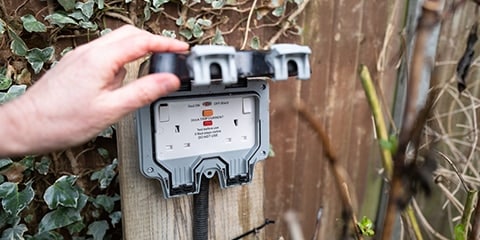If you own an electric vehicle (EV), recharging the battery can be as simple as connecting it to a power source using a charging cable. Most new EV’s come with at least one charging cable, so if you’re purchasing a used EV, it’s important to check what cables are included. Typically, you’ll receive two types of cables: a “Plug to Plug” cable for use with home Wallboxes and public AC charging stations (like those found at supermarkets) and an “ICCB” cable, more commonly known as a “granny cable.”
The term “granny cable” has two possible origins: some say it’s called this because it’s the slowest charging option, while others believe it refers to using the cable at places like a grandparent’s home where a dedicated charger might not be available. Regardless of the name, the granny cable is used for slow or “trickle” charging, typically providing 6-8 miles of range per hour of charging.
This cable features a control box that manages communication between the car and the power source, a role typically handled by dedicated charging stations. The granny cable allows you to charge your EV using a standard three-pin domestic socket, making it a useful backup when other charging options aren’t available.
The fixed-amp charger charges at a consistent power output of 10 amps and is only recommended for occasional or emergency use with a regular three-pin socket. However, if an electrician has inspected and approved the socket, you can safely use it for regular charging. For frequent use, an adjustable-amp charger is a better option.
The adjustable-amp charger works like a mini charging station, allowing you to control the current. It also includes a built-in Type B RCD (Residual Current Device), making it safer for use with sockets that haven’t been inspected by an electrician. This charger is versatile, letting you adjust the amperage manually, which is helpful if you’re using solar power or want to charge at a lower current. It also features a timer, enabling you to schedule charging during off-peak electricity hours.
Having a granny cable in your EV provides peace of mind, as it allows you to charge anywhere you can find a standard 13A 3 pin socket. Just be sure to ask permission before plugging in! While charging with a granny cable is slower, approximate charging speed is between 6 and 8 miles of charge per hour, it can charge your vehicle overnight with a suitable socket and so can make sure you won’t run out of charge when you’re far from a dedicated charging station.
If your EV didn’t come with a Plug to Plug or granny cable, you can view our range of portable chargers, including Type 1 to 3 pin and Type 2 to 3 pin chargers.



